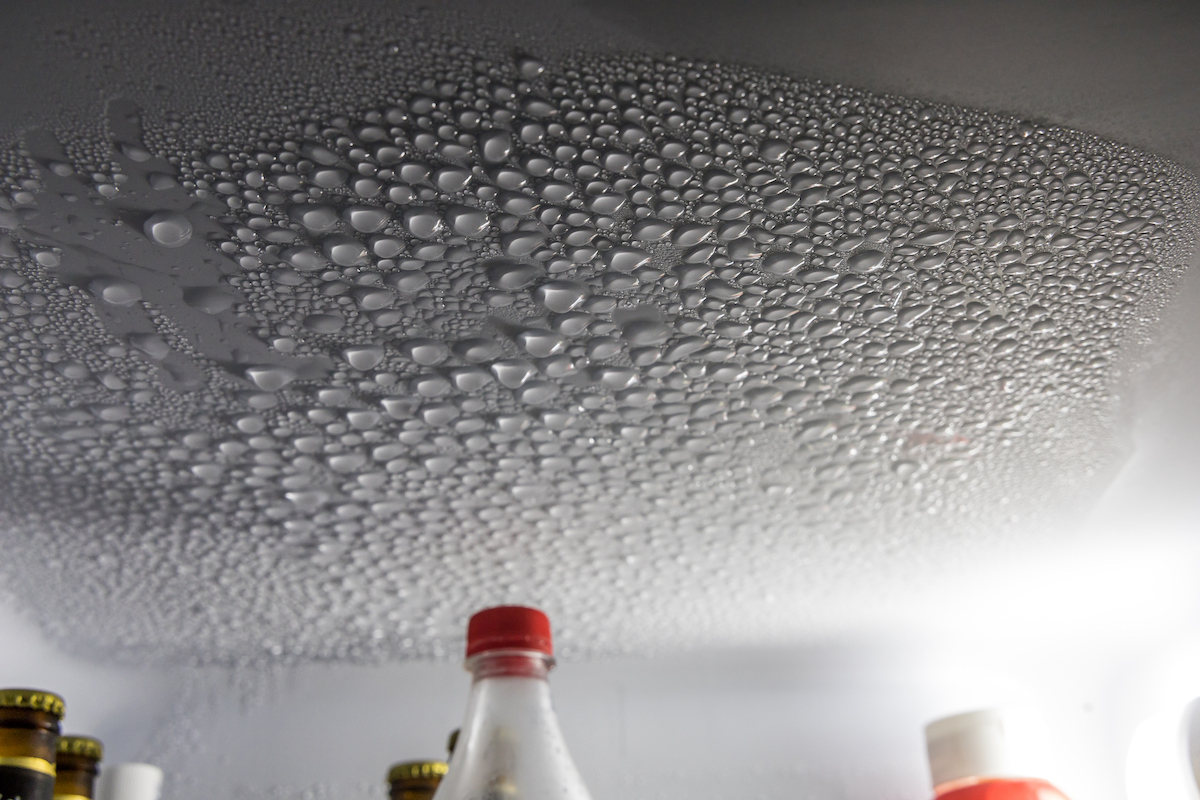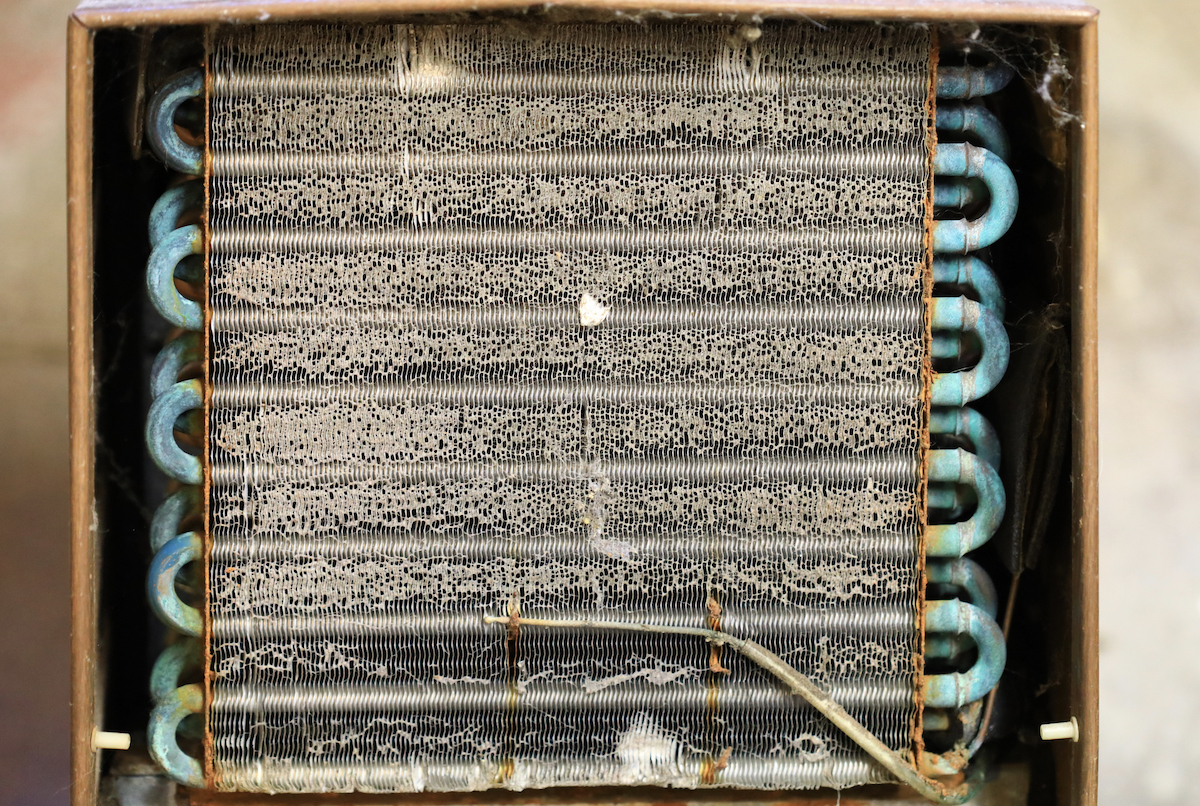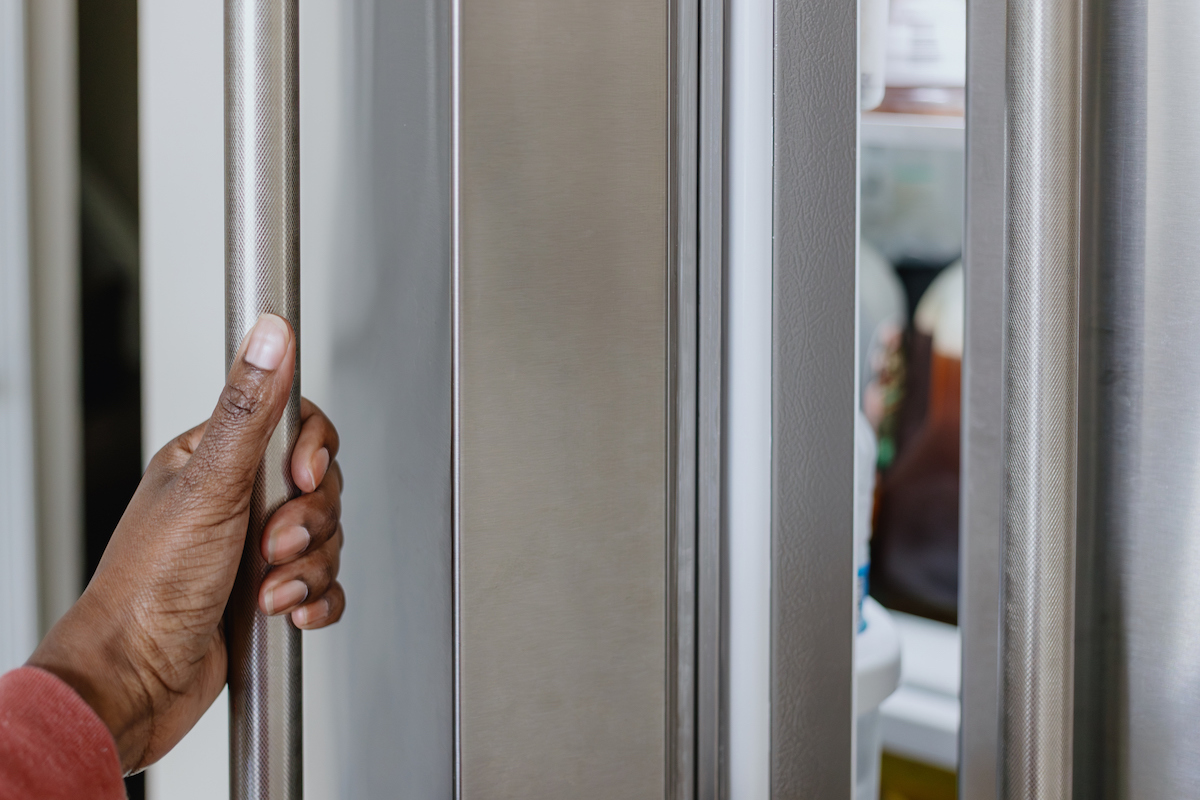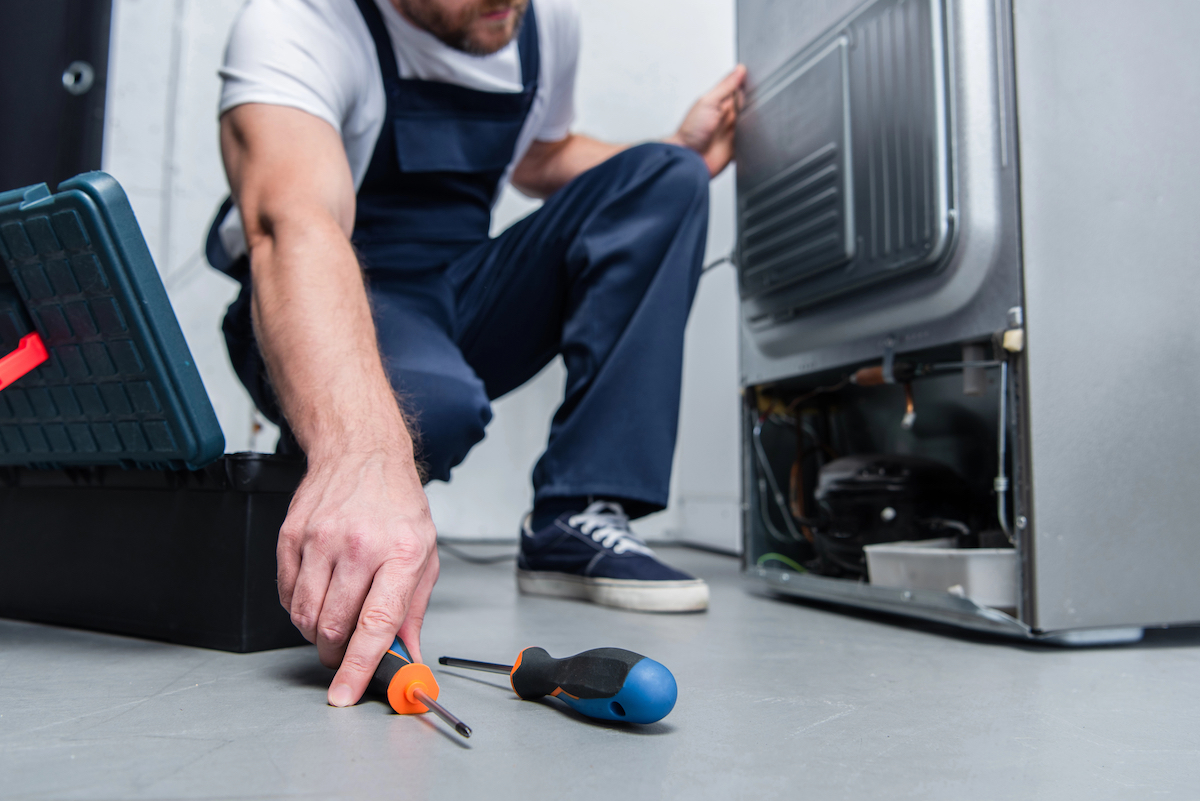We may earn revenue from the products available on this page and participate in affiliate programs. Learn More ›
Refrigerators are the main appliance in any kitchen, keeping food fresh and safe for consumption. But just like any home appliance, even the best refrigerators don’t last forever. Knowing when to expect a replacement can help with planning and budgeting.
What’s the average lifespan of a refrigerator?
A refrigerator lifespan is between 10 and 20 years, depending on the model, usage, and level of maintenance. According to the Department of Energy, the average life of a refrigerator is 12 years. However, don’t rely on its age alone to determine if you’re ready for a new one.
Instead, rely on the working condition of your fridge as a gauge. Its individual components begin to deteriorate, increasing the risk of malfunctions from pesky noises to excessive frost build-up in the freezer. Your fridge also can start to lose cooling efficiency and cause your utility bills to spike.
Ahead, see symptoms that indicate that your refrigerator needs repair, and signs that your fridge should be replaced.
Signs Your Refrigerator is Dying

If your refrigerator is showing signs of wear, it might be time to consider a replacement. Here are some common indicators that your fridge could be nearing the end of its life:
- Your fridge generates excess heat. If your refrigerator feels unusually warm to the touch, it may indicate that the motor is working harder than it should, possibly due to aging or component issues. Excess heat could mean your fridge is struggling to maintain a cool temperature and may be nearing the end of its lifespan.
- Food spoils prematurely. When your food begins to go bad faster than expected, it’s a sign that your refrigerator isn’t cooling properly. This could be because of an inefficient compressor or faulty seals, both of which impact the fridge’s ability to maintain consistent, safe temperatures.
- There’s excess condensation. Condensation inside the fridge or on its exterior often means poor temperature control or faulty seals. While some moisture is normal, excessive condensation can lead to mold, mildew, and food spoilage.
- Your fridge makes unusual noises. Refrigerators typically make a gentle hum, but a fridge that buzzes or rattles could signal an issue with the compressor or fan. If there’s a noise and there are cooling issues, it might be time for a replacement.
- There’s excess frost in your freezer. Excess frost buildup in the freezer often means the freezer isn’t properly regulating moisture levels, potentially due to a failing defrost function or faulty seals. Persistent frost issues can compromise food storage and efficiency.
- Your utility bills are suddenly higher. A sudden increase in your electricity bills may indicate your refrigerator is using more energy than usual to function. Older or failing refrigerators often become energy hogs, consuming more power to maintain cold temperatures.
How to Extend the Life of Your Refrigerator
While it’s possible to repair some appliance models, the average cost of repair is about the average cost of refrigerator replacement, if not more. Fortunately, by troubleshooting fixable problems and regularly maintaining your fridge, you should be able to extend its lifetime.
1. Clean the coils.

Condenser coils, which are the metal tubes found on the fridge exterior at the base or behind your fridge, help liquefy vaporized refrigerant from the unit’s compressor in order to release hot air from inside the fridge out into the kitchen. Dust and dirt trapped inside these coils prevent the efficient escape of heat, which can cause your fridge to constantly cycle on and off and eventually stop running completely.
Clean the coils once or twice a year to help make old fridges last longer. First, unplug the fridge, and then access the condenser coils behind the snap-on toe kick plate at the base, or pull the unit away from the wall if the coils are behind it. Vacuum dust on the coils with a dust brush attachment, then work a condenser coil brush, such as the Vanitek condenser coil brush, along and between the coils to eliminate dirt.
2. Check the doors.

The rubber insulation around the edges of the refrigerator door interiors seals in cold air and shuts out hot air. Over time, these gaskets can become misshapen, form cracks, tear, or loosen from the door. If this happens, cold air can leak out of the fridge and hot air can enter, increasing interior moisture. This can also cause ice dams to form in the fridge and freezer. These obstructions reduce storage space and hinder heat exchange between the unit and surrounding air, making it less efficient.
Lubricate the door gaskets by applying a thin film of petroleum jelly to the outer edges. This will maintain their elasticity and protect the integrity of the seal.
3. Rearrange the fridge contents.

The vents located on the sidewalls of your fridge and on the roof of your freezer aid in air circulation in the unit. When obstructed by food, vents work inefficiently, causing moisture or frost build-up and uneven cooling.
To keep the vents clear, move any foodstuffs placed directly in front of the vents and ensure that any twist ties from frozen food bags or crumbs from exposed foods like cakes do not encroach on vent openings.
Also, be sure to replace your refrigerator’s filter regularly to keep your appliance running efficiently and maintain clean, fresh-tasting water.
Common Fridge Issues to Watch Out For
Resolve minor fridge malfunctions as they arise to keep them from progressing into more severe problems. Below are easy fixes for common fridge troubles.
- Is there a puddle of water on the floor?
- Do you hear an unusual sound?
- Did the ice maker stop working?
- Is there a mysterious spill inside the refrigerator?
The solution: Locate the drain plug on the back wall of the main fridge compartment, moving any foods blocking it to another shelf or out of the fridge temporarily. Then fill a turkey baster or a meat injector (a syringe used to infuse the meat with flavoring) with a 50-50 solution of bleach and warm water and flush out the plug (it may require several applications). When you’re finished, dispose of the dirty liquid that settled in the drain pan at the base of the fridge.
Should You Repair or Replace Your Fridge?

When deciding to repair or replace your fridge, consider its age, repair costs, and overall performance. Generally, if your fridge is over 10 years old and repairs cost more than half the price of a new model, replacement may be the better option. However, if your fridge is newer and the issue is minor—like a faulty seal or fan—repairing it can extend its life and save money.
Refrigerator Warranties
While there are variations on warranties for refrigerators, most warranties for fridges just cover the first year of use, and specifically cover defects in the materials and can include parts and labor. As it’s hard to know whether the model you are purchasing is a good refrigerator that is defect-free, it’s important to keep that warranty handy if anything happens. To get the most out of the warranty, make sure to assess all of the fridge’s functions before that warranty runs out.
When considering whether you should upgrade a warranty, think about how much the warranty will cost versus the cost of that fridge. For high-end, hi-tech appliances, it often makes sense to have a robust warranty, as there are many more parts that could fail. According to Home Advisor, the average cost to repair a typical refrigerator is $200 to $330, but the cost for repairing a luxury model could be $1,000 or more.
Final Thoughts
There are many ways to extend the life of a refrigerator. Properly maintaining the appliance through regular cleaning, and investigating any issues as soon as they are spotted can help. However, if you have been wondering, “How long do fridges last?” it may already be time to start looking for a new one.
FAQs
The best time to buy a fridge is before the current one stops working. Review the signs of when a fridge may be failing (above), and plan to order one before you need it. With the current supply chain issues, it may be months before the model you desire is available. If you are just wanting to upgrade your model, there are usually appliance sales during national holidays.
Historically, fridges with freezers on top or bottom tend to last the longest, and those from well-known refrigerator brands like Whirlpool and LG tend to top lists for most reliable. The fewer parts that can fail translates into a model that could potentially last longer and cost less to repair.
When disposing of your old fridge, avoid putting it on the curb, as it contains recyclable components and harmful chemicals. Instead, ask your appliance dealer, city recycling program, or a local disposal agency if they can remove or accept it. Some cities also have bulky waste services or DIY disposal sites for safe refrigerator recycling.


